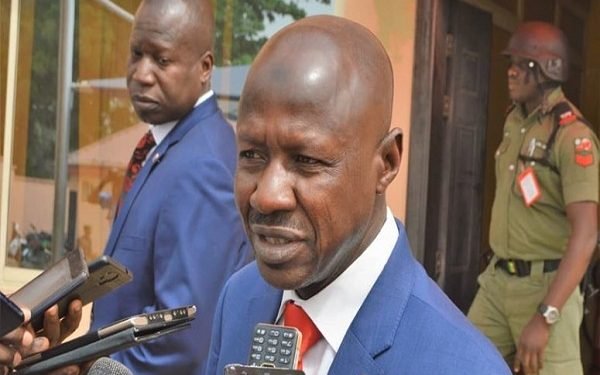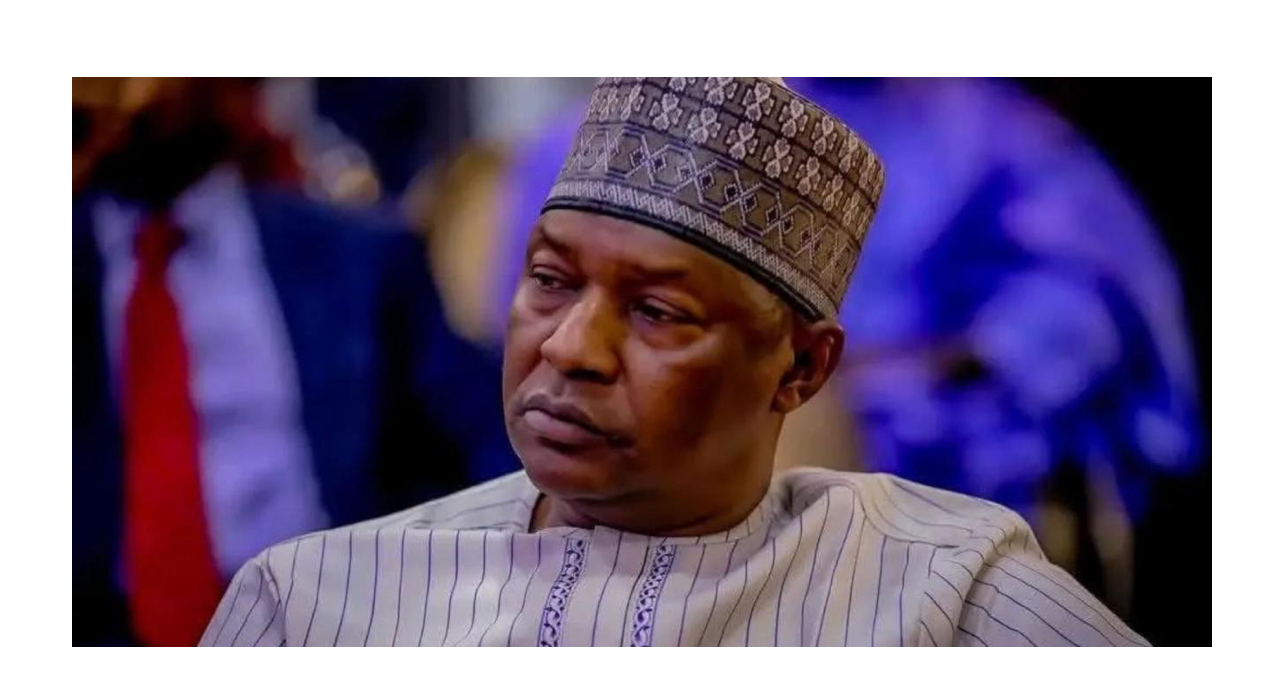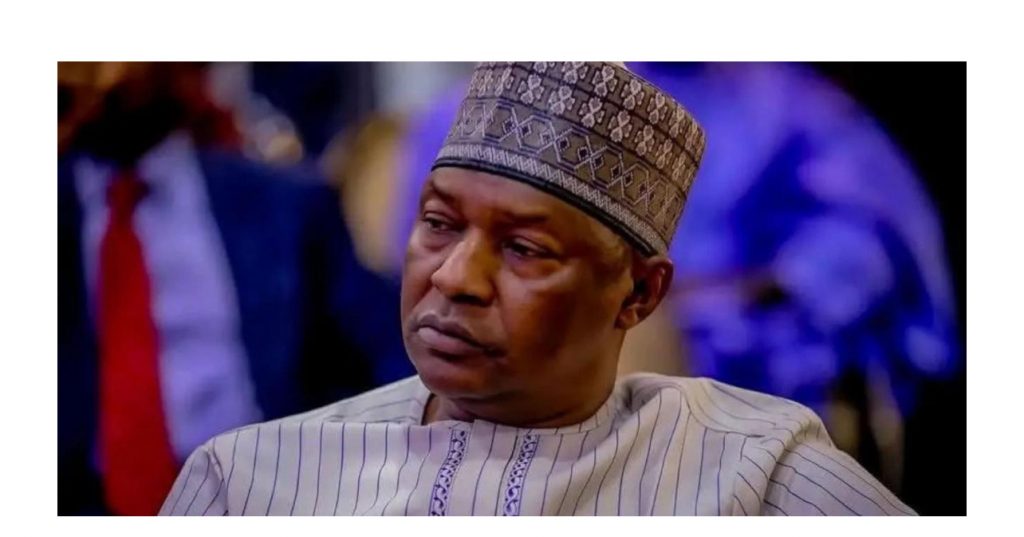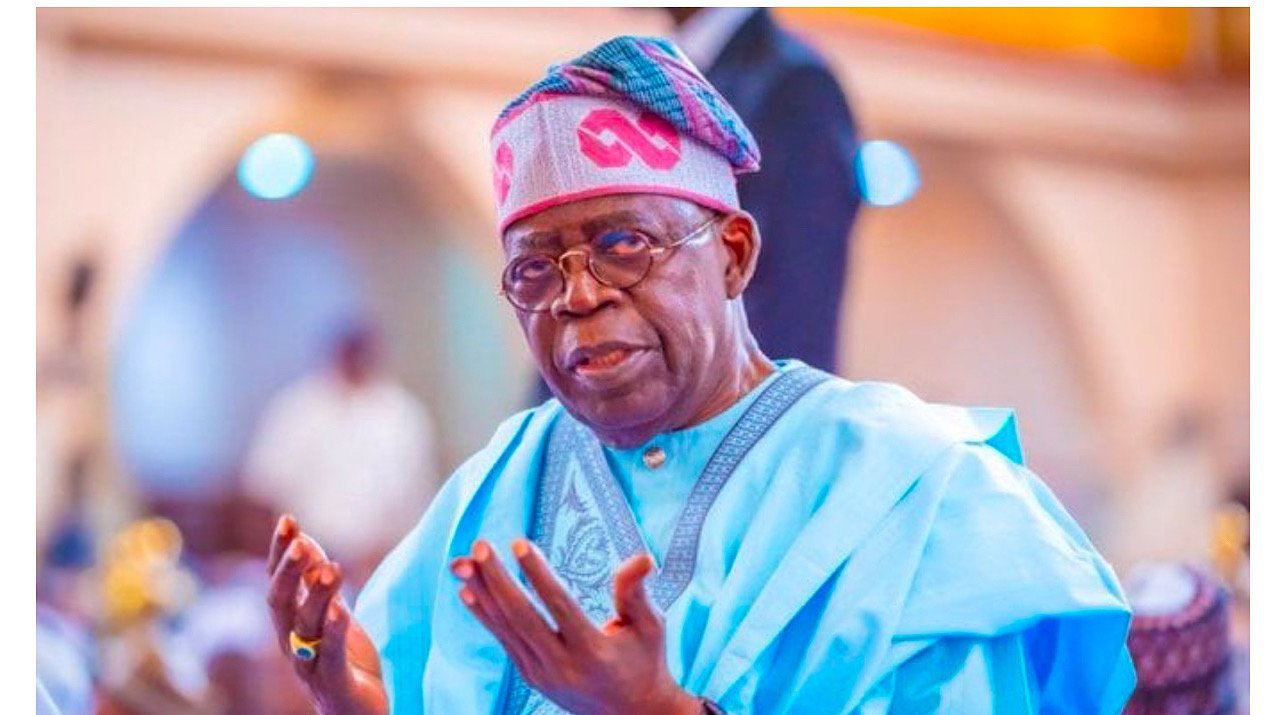 President Bola Tinubu has declared that 2026 marks the beginning of a more robust phase of economic growth for Nigeria, pledging to drive down inflation further, strengthen foreign reserves and sustain the country’s GDP growth trajectory.
President Bola Tinubu has declared that 2026 marks the beginning of a more robust phase of economic growth for Nigeria, pledging to drive down inflation further, strengthen foreign reserves and sustain the country’s GDP growth trajectory.
In his New Year message to Nigerians on Thursday, the President expressed confidence in the nation’s collective resolve, saying the new year would be a more prosperous one for the country, its citizens, and all who call Nigeria home.
Tinubu argued that during 2025, his administration sustained momentum on major reforms, achieved a fiscal reset and recorded steady economic progress. Despite persistent global economic headwinds, he said, Nigeria recorded tangible and measurable gains, particularly in the economy.
“These achievements reaffirm our belief that the difficult but necessary reforms we embarked upon are moving us in the right direction with more concrete results on the horizon for the ordinary Nigerian,” he stated.
The President disclosed that Nigeria closed 2025 on a strong note, with annualised GDP growth expected to exceed four per cent for the year.
Trade surpluses were maintained and greater exchange rate stability was achieved, while inflation declined steadily to below 15 per cent, in line with his administration’s target.
“In 2026, we are determined to reduce inflation further and ensure that the benefits of reform reach every Nigerian household,” he said.
Tinubu pointed to the performance of the Nigerian Stock Exchange, which, he said, posted a robust 48.12 per cent gain in 2025, consolidating its bullish run that began in the second half of 2023.
On foreign reserves, he disclosed that sound monetary policy management had seen reserves stand at $45.4bn as of December 29, 2025, providing a substantial buffer against external shocks for the Naira. He expressed optimism that this position would strengthen further in the new year.
Foreign direct investment, the President noted, was also responding positively. In the third quarter of 2025, FDI rose to $720m, up from $90m in the preceding quarter, reflecting renewed investor confidence in Nigeria’s economic direction, which global credit rating agencies, including Moody’s, Fitch, and Standard & Poor’s, had consistently affirmed and applauded.
Tinubu recalled that he recently presented the 2026 Appropriation Bill to the National Assembly, emphasising that his administration had implemented critical reforms laying a solid foundation for long-term stability and prosperity.
“With patience, fiscal discipline, and unity of purpose, Nigeria will emerge in 2026 stronger and better positioned for sustained growth,” he said.
As inflation and interest rates moderate, the President said, his administration expected increased fiscal space for productive investment in infrastructure and human capital development.
He commended states that had aligned with the national tax harmonisation agenda by adopting harmonised tax laws to reduce the excessive burden of taxes, levies, and fees on citizens and basic consumption.
The new year, Tinubu added, marks a critical phase in implementing tax reforms designed to build a fair, competitive, and robust fiscal foundation for Nigeria.
On security, the President acknowledged that the nation continues to confront threats from criminal and terrorist elements.
He disclosed that in collaboration with international partners, including the United States, decisive actions were taken against terrorist targets in parts of the Northwest on December 24.
The Armed Forces, he said, had since sustained operations against terror networks and criminal strongholds across the Northwest and Northeast.
“In 2026, our security and intelligence agencies will deepen cooperation with regional and global partners to eliminate all threats to national security. We remain committed to protecting lives, property, and the territorial integrity of our country,” the President stated.
He reiterated his belief that a decentralised policing system with appropriate safeguards, complemented by properly regulated forest guards and anchored on accountability, was critical to effectively addressing terrorism, banditry, and related security challenges.
Tinubu also announced plans to accelerate the implementation of the Renewed Hope Ward Development Programme, aiming to bring at least 10 million Nigerians into productive economic activity by empowering at least 1,000 people in each of the 8,809 wards across the country.
Through agriculture, trade, food processing, and mining, he said, the administration would stimulate local economies and expand grassroots opportunities. Investment would also continue in modernising Nigeria’s infrastructure, including roads, power, ports, railways, airports, pipelines, healthcare, education, and agriculture to strengthen food security and improve quality of life.
The President called on all Nigerians to play their part, describing nation-building as a shared responsibility that required unity of purpose, patriotism, and service with honour and integrity.
“To achieve our objectives in 2026, we must all play our part. Nation-building is a shared responsibility.
“We must stand together in unity and purpose, uphold patriotism, and serve our country with honour and integrity in our respective roles. Let us resolve to be better citizens, better neighbours, and better stewards of our nation.
“Fellow Nigerians, I wish you all a peaceful, productive, and prosperous New Year. May God continue to bless and protect our beloved country, keep our troops safe and destroy the enemies bent on disrupting our national peace, security and stability,” he stated.
Meanwhile, governors and other political leaders across the country reflected on the trials of the outgoing year, calling for unity, resilience, and renewed commitment to governance, security, and economic recovery.
Speaker of the House of Representatives, Dr Tajudeen Abbas, urged Nigerians to remain positive and hopeful about the future.
In his New Year message released on Wednesday and signed by his Special Adviser on Media and Publicity, Musa Krishi, Abbas called on citizens to look forward to 2026 with optimism and to continue working collectively for the unity and progress of the country.
Reflecting on the outgoing year, the Speaker noted that 2025, despite its challenges, recorded commendable strides in good governance and improvements in national security, particularly with the successes achieved in the fight against terrorism and banditry.
He therefore appealed to Nigerians across all divides to strengthen national cohesion and commitment to peace-building.
“In every new dawn lies a promise,” the Speaker said, as he commended Nigerians for their patience, perseverance, and contributions towards building a stronger nation.
Niger State Governor, Mohammed Bago, in a statement by the Commissioner for Information, Obed Nana, said social pressures and security challenges tested the resilience of his government in 2025.
He, however, said the state stood firm through unity, patience, and unwavering faith in his government.
Niger State experienced major security challenges in 2025, including incidents of tanker explosions which claimed many lives, boat accidents, and terrorist abductions, particularly of schoolchildren in November.
Therefore, Bago asked residents to continue to support his administration in its efforts to deliver the New Niger Agenda, anchored on good governance, security, and economic revitalisation.
“The outgoing year tested our resilience as a people, particularly in moments of security challenges and social pressures. Yet, through unity, patience, and unwavering faith in government, Niger State stood firm.
“I sincerely thank the people of Niger State for their trust, cooperation, and steadfast support at critical moments, which greatly strengthened our collective response and progress,” he said.
Bago promised that his government remained committed to transparent communication, responsive leadership, and policies that placed the welfare of citizens at the centre of governance.
A former Kaduna State Governor and chieftain of the Peoples Democratic Party, Ahmed Makarfi, urged Nigerians to remain united and resilient in the New Year. In his message issued in Kaduna on Wednesday, he acknowledged the hardships faced by citizens over the past year but expressed optimism for a better future.
According to him, Nigerians must confront the nation’s challenges together as a united people bound by shared hopes and a promising destiny.
“As we exit the year 2025, I extend warm greetings and best wishes to all Nigerians,” Makarfi said, praying that the New Year offered “a renewed opportunity to strengthen our resolve and collectively overcome our challenges.”
Senator Adetokunbo Abiru, representing Lagos East Senatorial District, called on Nigerians to embrace unity, renewal, and collective resolve as the country enters 2026. He urged sustained support for policies aimed at economic stability, inclusive growth, and grassroots development.
In his New Year message to his constituents, Lagos State, and Nigerians at large, the lawmaker described the beginning of 2026 as an opportunity for reflection and renewed commitment to progress and prosperity.
He reaffirmed his commitment to championing policies that promote economic stability and inclusive growth, stressing that development must reach every ward, community, and household across Lagos East.
Abiru therefore urged Nigerians to continue supporting the administration of President Bola Tinubu as it implemented policies targeted at strengthening the economy, improving infrastructure, expanding opportunities, and securing a more prosperous future for citizens.
The Anglican Bishop of Owo Diocese of Ondo State, Stephen Fagbemi, called on Christians and all Nigerians to embrace peace and love in the New Year.
Tinubu projects lower inflation, stronger growth in 2026 New Year address
In a New Year message delivered through the Public Relations Officer of the diocese, Banjo Abitogun, on Wednesday, the cleric expressed optimism that the New Year would be a season of high hope and fresh opportunity for Christians with “unwavering faith in God, renewed commitment to righteous living, and genuine love for one another.”
He further prayed for Nigeria, asking God to grant the nation wise leadership, economic recovery, security of lives and property, and unity among all citizens.
For its part, the Young Progressives Party has urged Nigerians not to lose faith in the democratic process ahead of the 2027 general elections, despite widespread frustration arising from past electoral experiences.
The party made the call in its New Year message issued on Wednesday in Abuja by its National Publicity Secretary, Egbeola Martins.
Public confidence in Nigeria’s electoral process sharply declined following the 2023 general elections, which were marred by widespread complaints of technical glitches, particularly the failure of the Independent National Electoral Commission’s Result Viewing Portal to upload polling unit results in real time.
The disruptions triggered protests, legal challenges and persistent allegations of manipulation, reinforcing calls for comprehensive electoral reforms to restore trust ahead of the 2027 polls.
Martins appealed to the masses to intensify civic engagement and political participation in what he described as a decisive period for Nigeria’s democracy.
According to him, years of electoral setbacks should not translate into apathy or silence in the face of poor governance.
“Though the journey has been difficult and often discouraging, surrendering our sovereignty must never translate into docility or silence in the face of bad governance.
“The YPP calls on Nigerians not to be discouraged by the experiences of previous elections.
“Rather, citizens must mobilise like never before in this penultimate election year to reclaim their power at the ballot in 2027 and vote out incompetent, corrupt and insensitive leadership. The future of our democracy depends on active participation, not apathy,” he said.
The party further urged Nigerians to begin demanding accountability from public office holders, especially in light of fiscal reforms expected to increase government revenue.
“Nigerians must begin to ask critical questions, demand answers and closely scrutinise public spending, especially with the advent of the new tax law, which is expected to widen the tax net and significantly increase government revenue.
“Democracy thrives when citizens remain vigilant and hold leaders accountable. Increased revenue without transparency, accountability and prudence will only deepen public mistrust and hardship,” he stated.
The YPP also warned against what it described as the politicisation of anti-graft agencies, insisting that selective justice undermines democracy and weakens public institutions.
“We strongly warn against the weaponisation of the Economic and Financial Crimes Commission and other anti-corruption agencies against political opponents.
“The fight against corruption must be sincere, impartial and devoid of political bias. Selective justice weakens institutions and erodes public confidence in governance,” he said.
On the newly introduced tax law, the party maintained that Nigeria’s fiscal crisis was rooted more in poor expenditure management than revenue shortfalls.
Martins criticised what he described as extravagant spending by public officials and called for accountability before full implementation of the law.
He argued, “Nigeria’s major challenge has never been revenue generation but the reckless, wasteful and opaque expenditure of public funds.
“Nigerians are not opposed to paying taxes; rather, they are deeply concerned about the lack of transparency, probity and discipline in the management of our commonwealth.
“It is unacceptable for taxpayers’ money to be used to fund religious pilgrimages, purchase private jets and yachts, procure luxury SUVs for members of the National Assembly and sustain the looting and frivolous lifestyle of a reckless political elite.”
“We therefore call on the government to urgently resolve all discrepancies associated with the new tax law before implementation.
“More importantly, those responsible for the discrepancies must be thoroughly investigated, apprehended and punished in accordance with the law,” Martins urged.
Sokoto State Governor, Ahmed Aliyu, has assured residents that his administration will consolidate on the achievements recorded in 2025 as the state steps into the new year, with renewed focus on security, education, infrastructure and economic empowerment.
In his New Year message released to journalists in Sokoto on Wednesday, the governor said 2026 would be a year of consolidation and accelerated development, guided by his administration’s nine-point Smart Innovative Agenda.
Aliyu said his government would continue to prioritise critical sectors capable of fast-tracking socio-economic growth across the state, stressing that peace and security remain central to development.
He disclosed that the state government had developed a fresh blueprint to further support security agencies in tackling banditry, especially in the 13 local government areas affected by insecurity.
“We have already drawn up a blueprint on how to further assist security agencies in the areas of logistics, intelligence gathering and intelligence sharing,” the governor said.
He urged security agencies to intensify their operations in the new year, while calling on residents, particularly those in frontline communities, to cooperate by providing timely and credible information.
Aliyu also appealed to communities to expose individuals exhibiting suspicious behaviour or living above their means, noting that community vigilance would help dismantle informant networks aiding criminal activities in rural areas.
On education and religious development, the governor announced plans to construct new Islamiyya schools and rehabilitate those in poor condition.
He added that ongoing renovations of primary, secondary and tertiary institutions would be completed, with more furniture supplied and sustained attention given to teachers’ welfare.
In infrastructure development, Aliyu said all ongoing housing projects in Wajake, Gidan Salanke and Sokoto New City, alongside rural and township road projects, would be completed before the end of the second quarter of 2026.
The governor reaffirmed his administration’s commitment to economic empowerment programmes, including NG-CARES, Ahmadu-CARES and other initiatives targeting youths and women.
He also promised improved water supply, stating that all ongoing water projects would be completed, with additional machinery provided for major water intake facilities across the state.
In agriculture, Governor Aliyu said the government would continue to support farmers with inputs and implements, adding that contracts had already been awarded for the procurement of tractors to boost mechanised farming.
The health sector, he said, would remain a priority through the renovation of health facilities and the provision of modern medical equipment across the state.
“By the grace of Almighty Allah, we will ensure the successful actualisation of all these projects in 2026,” he assured.
Governor Aliyu thanked the people of Sokoto State for their continued support and reaffirmed his commitment to good governance, while wishing residents and Nigerians a prosperous New Year.
A former Minister of Transportation, Rotimi Amaechi, urged Nigerians to hold those in authority accountable, describing responsible and people-oriented leadership as key to addressing the country’s economic and security challenges.
In his New Year message, Amaechi, a former governor of Rivers State and Transport Minister, said 2025 tested the nation’s resilience, with many families grappling with economic hardship, rising cost of living and widespread insecurity.
He called on Nigerians to use the new year as a turning point in the quest for peace, unity, improved security, economic stability and the overall well-being of the people.
According to him, citizens must collectively demand responsible, responsive, transparent and accountable leadership.
Amaechi also called for economic reforms that would lead to job creation, poverty reduction, affordable healthcare, housing and food, as well as quality education for all Nigerians.
Post Views: 220





 President Bola Tinubu has declared that 2026 marks the beginning of a more robust phase of economic growth for Nigeria, pledging to drive down inflation further, strengthen foreign reserves and sustain the country’s GDP growth trajectory.
President Bola Tinubu has declared that 2026 marks the beginning of a more robust phase of economic growth for Nigeria, pledging to drive down inflation further, strengthen foreign reserves and sustain the country’s GDP growth trajectory.
 Former heavyweight champion Anthony Joshua has been hospitalised after a road accident in the Makun area of the Lagos-Ibadan Expressway, Ogun State.
Former heavyweight champion Anthony Joshua has been hospitalised after a road accident in the Makun area of the Lagos-Ibadan Expressway, Ogun State.








